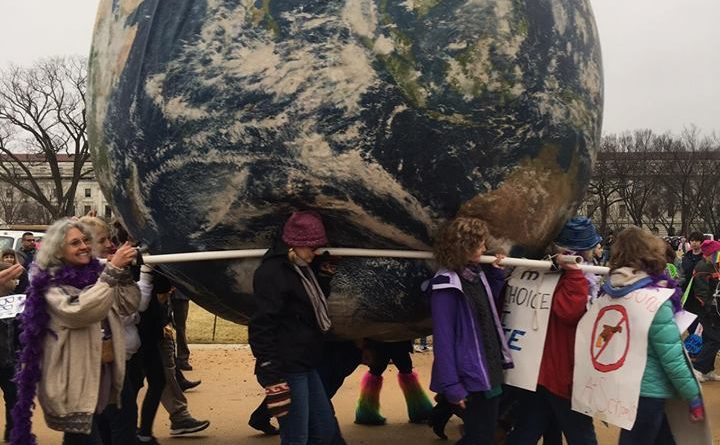Women’s Marches: Around the Globe
The day after Donald Trump was inaugurated as President of the United States, women all over the world marched in protest to protect women’s rights, press rights, and human rights. The main march took place in Washington, D.C. The other marches were known as “sister marches” and took place in solidarity with the women protesting in D.C.
According to womensmarch.com, 673 marches took place with an estimated 4,956,422 marchers in 80 countries along with the United States and the U.S. Virgin Islands. According to nytimes.com, President Trump did not acknowledge or attend the marches. Instead, he attended the National Prayer Service at the National Cathedral, then visited the CIA and spoke about the large crowds in attendance at his inauguration while ignoring the many people rallying outside the White House.
When asked why he thought it was important to attend, college student Jared Leitzel, who attended the Hartford, Ct., march with his wife and son, replied, “I attended the march because I care about this country and all of our citizens…I want to express my opposition [to the Trump Administration] in a constructive manner.”
Leitzel’s hope for the future is that the President and other government workers “realize that they only won an election, they don’t own the country…and we will hold them accountable.”
Erin Aebel, a lawyer in St. Petersburg, Fl., attended the Women’s March in her city. Aebel said it was the largest march in the city’s history.
“I attended the Women’s March because I was disgusted at how women were treated during the election. And just about everything I stand for is in jeopardy with a Trump presidency,” Aebel commented.
As a result of the march, Aebel says she thinks it motivated many people to become more active in their government and hopefully run for office.
Stephanie Rittenhouse, who moved from Florida to central Pennsylvania several years ago, has been fighting to get people involved with their local governments and become educated since she moved. Rittenhouse was unable to attend any of the marches, but she is an active supporter. She feels that they are important in order to lift up minorities’ voices.
“I feel they are important so the true majority of the country can have their voices heard during a time when they are being silenced, [a] time when the ideology of the government doesn’t align with the ideology of the majority of citizens who exercised their right to vote,” Rittenhouse says. “I think the future of this movement is just starting. The marches were just a catalyst. During the 2018 elections, we will still be actively involved. Still making our voices heard. Still fighting for a better world for our children.”
Despite President Trump’s refusal to acknowledge the marches and protests, it appears as though many people are pushing forward to keep the progress the country has made. Time will show us how well this method works.

